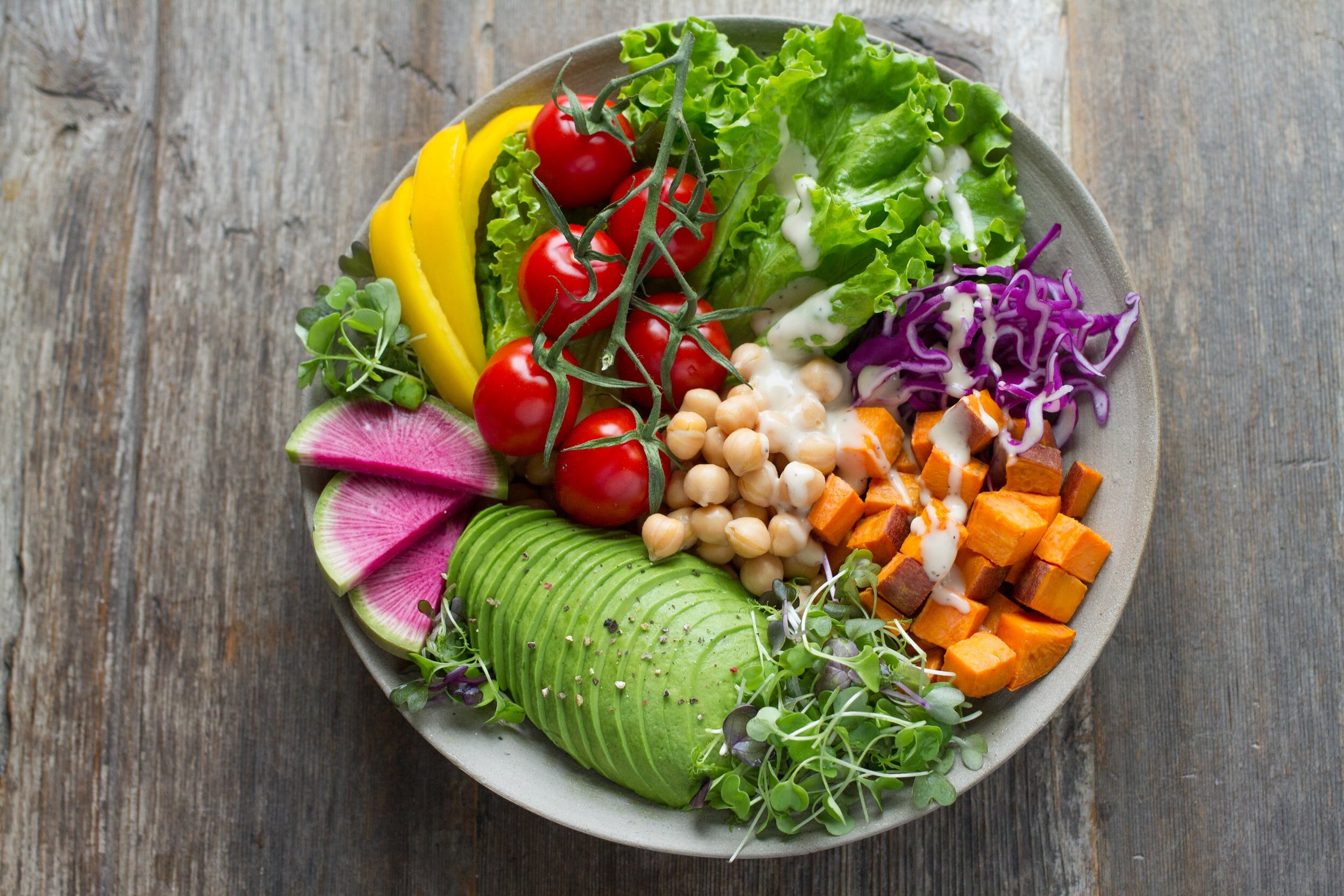Energize Your Body
/How is your overall health?
How are your energy levels?
Whether you’re looking to boost your metabolism, build strength, or lose weight, it’s important to consider how you’re fueling your body. How are you nourishing yourself?
Nourishment comes from more than just food. It can also include what you’re feeding your mind through social media, TV, and reading, and who you’re talking to and whose energy you’re around. Not to mention food and hydration themselves are nuanced: what you eat, when you eat it, what foods are eaten in combination, how you’re feeling, whether you’re mindful or in a rush.
How much energy do you need?
As you’re thinking about your overall health and your nutrition, it’s helpful to remember our bodies need a lot of energy. Calories fuel us to maintain all essential functions as we sleep, move, work, interact, and work out.
The body constantly operates internal organs and physical activities, repairing, building, and maintaining cells and tissues as it goes. Thinking hard and problem solving burn calories. While it may not be the same level as a professional athlete would burn on the field, it’s worth noting that even in your resting state, the brain consumes about 20% of the body’s energy.
While everyone is different, it is hard to predict how much energy you need every day. The basal metabolic rate, or BMR, refers to the minimum amount of energy that your body needs to stay alive and keep functioning. This doesn’t include working out or lifestyle preferences. The BMR utilizes approximately 60% to 65% of your energy stores every day. It is determined by your body composition, the way your body absorbs nutrients, and your physical and mental activity. Therefore, it makes sense that understanding how much energy you need is the key to becoming the master of your body. As calories generate energy, you need a tool that can calculate your daily caloric requirements based on your body and lifestyle, such as tdee weight loss. Ideally, you want to think of your body as a car. A car can only go as far as you’ve put fuel for the journey. Your body follows the same principle. Regardless of your fitness goals, you need to fuel the body and prepare it for the journey. This tool helps you understand how much fuel you need.
Fueling well
To carry on with the fuel image, you need to give your car the right type of fuel to get the best performance. Filling up your tank with the wrong fuel could damage the engine. Even if it doesn’t cause visible damage, it could still affect the performance of your vehicle. Most drivers are aware that premium fuel is more likely to support the car's performance in the long term. When it comes to your body, food is your fuel. But the principle remains the same. Low-premium fuel, for instance, will have consequences for your health. A simple and common example is when you fuel your body the right amount of calories to maintain bodily function, but you are not considering the vitamins and minerals you need. Vitamin deficiencies are linked to health issues and can affect your organs’ health and functions. The wrong type of food can also change your brain. Indeed, neuroplasticity means that the brain is continuously rewiring and reshaping pathways. The process affects concentration, cognitive and mental abilities, and essential functions such as hormonal regulations or mood. The wrong type of food can also create inflammation and tissue damage inside the brain.
What’s your relationship to food?
Whether you are looking to make changes in your body’s composition or weight, or you just want to maximize your health and feel incredible as you age, it’s important to have a healthy and balanced relationship with food.
How do we do this?
First, understand how your relationship to food is. An unhealthy or imbalanced relationship to food might mean:
You feel guilty or ashamed about eating certain foods.
You starve yourself or binge eat, or you have an eating disorder.
You track your food obsessively.
You ignore hunger.
You’ve created rules and restrictions around food, or are constantly dieting.
A healthier and more balanced approach might involve:
Allowing yourself to eat a variety of foods and to enjoy eating them.
Eating when you’re hungry.
Planning healthy meals for yourself and eating plenty of food.
Listening to your body and not the opinions of others when it comes to food.
Eating foods in moderation and adjusting your nutrition based on what you need on a daily basis.
Enjoying healthy foods
What we eat is often driven by our habits and our emotions. It can be helpful to cultivate a sense of pleasure in healthy food that tastes and does good for your body. Here are some things to consider:
What are your favorite healthy foods? How do you feel when you eat these?
Notice your cravings. Do you usually crave a certain type of “unhealthy” food, like sugar or salt or fat?
How does your mood impact your nutrition habits? Do you eat based on emotions?
What is one small habit you can incorporate into your routine to improve your nutrition? For example, adding greens to your plate at every meal, or drinking more water during the day.
What does “healthy” mean to you? What did you learn growing up about nutrition and what it means to be “healthy” and how have these beliefs impacted your nutrition as an adult?
Embracing energy expenditure
Movement does a body good! There are many benefits to establishing a solid routine for regular exercise. Energy expenditure is a factor in how you nourish yourself but there are many benefits whether or not you’re looking to lose weight. Working out helps you:
Boost your mood
Learn to overcome challenges
Sweat to detoxify
Become mentally strong and learn how to become your own cheerleader
Spend time alone and work through emotions
Create a mind-body-spirit connection
Know your body better
Understanding and respecting your body’s energy is a long journey of self-discovery. As you heal and explore these topics, a lot can come up! Give yourself permission to make peace with your own perception of food, calories, and overall health.
Your body is your own, and you can choose to give yourself the energy to grow.





















Memoir ghostwriting is about transforming your life in the process of writing a beautifully-crafted book. Here’s why my clients often say the healing becomes the most valuable part.